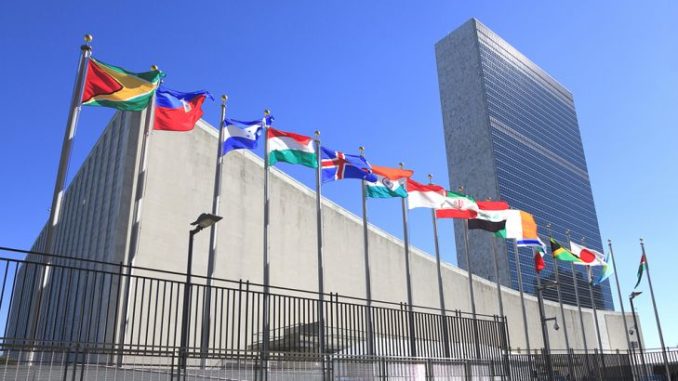
UN secretary general Antonio Guterres has emphasised UN support to Africa in his fight to end the scourge of terrorism, noting that the situation in the region is worrisome.
Mr Guterres said this at a debate on Tuesday at UN headquarters in New York, organised by the Security Council, headed by Mozambique, which holds the rotating Security Council presidency in March.
Leaders across the continent joined ambassadors in examining how to counter terrorism and better prevent violent extremism through stronger cooperation between the UN and regional organisations.
President Filipe Nyusi of Mozambique chaired the debate. Mozambique is one of the countries battling a deadly insurgency in the north for more than five years.
The secretary general expressed deep concern over the gains that terrorist groups were making in the Sahel and other parts of Africa.
“Despair, poverty, hunger, lack of basic services, unemployment, and unconstitutional changes in government continue to lay fertile ground for the creeping expansion of terrorist groups to infect new parts of the continent,” he said.
According to the UN chief, fighters, funds, and weapons are increasingly flowing between regions and across the continent, while terrorist groups are forging new alliances with organised crime networks and piracy groups.
He added that their “violent ideologies” are also being spread online.
Guterres said that just as terrorism drives people apart, countering can bring countries together, pointing to several initiatives across Africa, including in the Sahel, the Lake Chad Basin and Mozambique.
The United Nations stands with Africa to end this scourge,” he added. “Above all, it includes our ongoing close collaboration with the African Union (AU) and regional and sub-regional African organisations.”
Mr Guterres said the UN had been delivering tailored assistance to African countries in areas that include prevention, legal assistance, investigations, prosecutions, reintegration and rehabilitation.
Alongside Nigeria, he said the UN would also co-organising the upcoming African Counter Terrorism Summit and would strengthen work together on important peace initiatives.
In addition, he said the organisation would also advocate for new AU-led “robust” peace-enforcement missions and counter-terrorism operations, with Security Council mandates, urging countries to support this vital work.
The secretary general also looked to June, when the UN Global Counter-Terrorism Strategy, adopted in 2006, undergoes its eighth review. This, he said, would mark a “critical opportunity” for countries to find new ways to more effectively tackle the conditions that create the fertile ground for terrorism to spread.
He added that the meeting would also serve as a reminder that human rights must be at the centre of counter-terrorism efforts.
“Evidence shows that counter-terrorism efforts that are solely security-focused rather than human rights-based can inadvertently increase marginalisation and exclusion and make the situation even worse,” Mr Guterres stressed.
